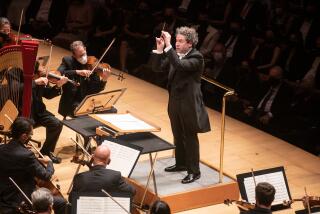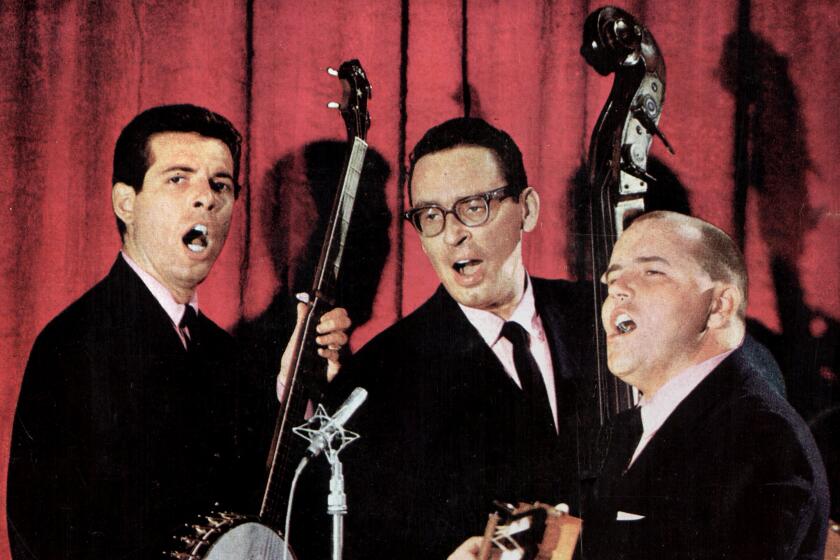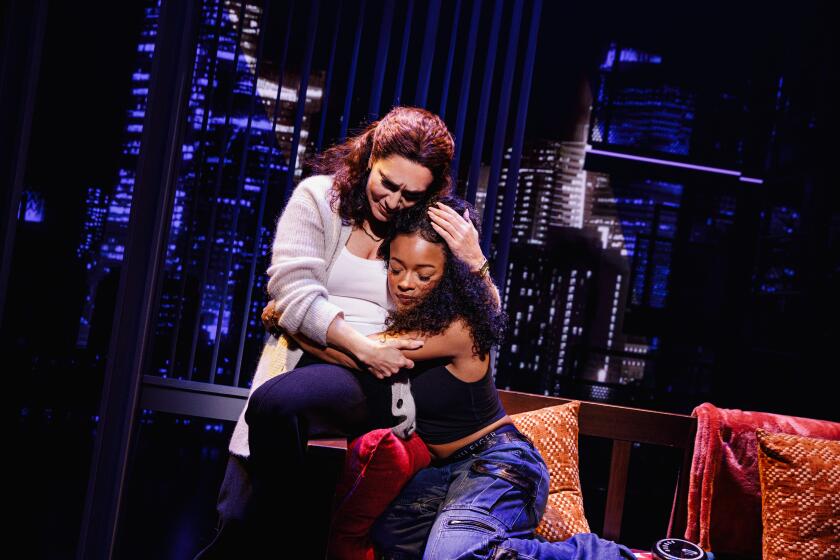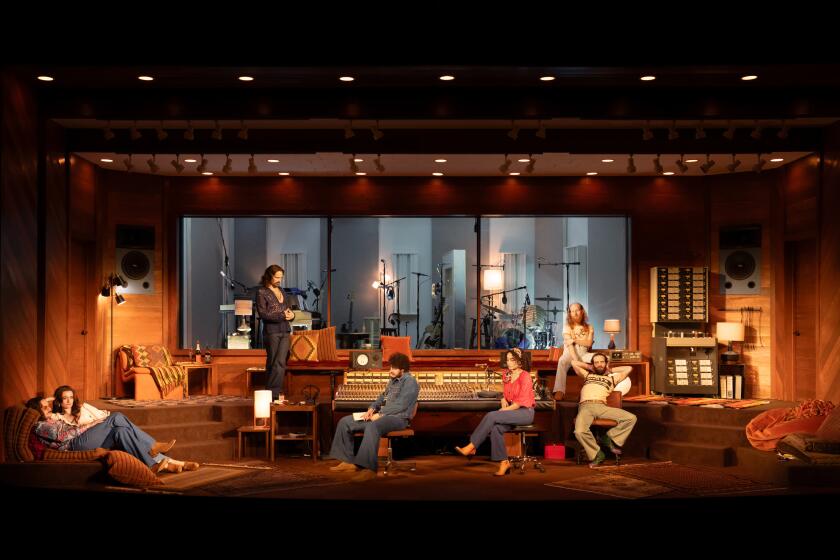Review: L.A. Master Chorale delivers a mighty, thrilling Verdi Requiem
Something special was happening at Walt Disney Concert Hall. There was none of the usual talk from the podium from Los Angeles Master Chorale artistic director Grant Gershon this time. After a bit of silence for contemplation, he summoned the dark, mysterious opening that launches the mighty Verdi Requiem. The passage emerged soulfully from the lower strings, and Gershon could make the phrases breathe as if the instrumentalists were singers.
It was a good omen for the rest of the evening Sunday. This was simply one of the greatest live performances of the Verdi Requiem that I’ve ever experienced.
See more of Entertainment’s top stories on Facebook >>
Everything clicked: the pacing, the quality of the vocal soloists, the controlled fervor of the Master Chorale, the unified playing of the orchestra, a good hall to project the sound.
This was an extroverted Verdi Requiem, well-matched with the bright forward sound of the Master Chorale. Except for the broadly paced opening and final bars, the tempos leaned toward the propulsive side, yet all the tempo relationships were comfortably balanced with one another, never rushed, and the tremendous climaxes were carefully shaped and detonated.
The eruptions of the Dies Irae section made the right thrilling impact each time -- not always the case in some performances -- with the percussionist whacking away on two bass drums and trumpeters in the balconies producing almost overwhelming antiphonal effects. Gershon could probe meaningfully into the more contemplative and lyrical passages, yet things were always kept moving and flowing along.
Gershon was fortunate to have on hand four terrific vocal soloists with plenty of amplitude to spare, enough so that they could be placed in back of the medium-sized orchestra and still be heard clearly. It was a treat to hear the low male vocal parts sung with such subterranean power by a genuine basso, Morris Robinson, who was also impressive as Oroveso in L.A. Opera’s “Norma” in November. The first recording of the Requiem in 1939 featured a basso, the legendary Ezio Pinza, and there haven’t been many like that in this music since. (Usually we hear bass-baritones.)
Not to be outdone, soprano Amber Wagner poured forth streams of opulent sound, registering just enough terror in her voice in the Libera Me section. Mezzo-soprano Michelle DeYoung also made a big impression with her long, steady legatos, and tenor Issachah Savage’s singing was sensitive and full-blooded. As a whole, this was an unusually well-balanced, well-blended vocal quartet.
Long ago, a wag tagged Verdi’s Requiem -- perhaps a bit wickedly -- as the composer’s “best opera,” and there is a grain of truth in that, for Verdi was able to bring forth his full musical and dramatic powers without the hassles of sometimes incredulous plots, opera house politics and official censorship. So for Grant Gershon, an excellent choral conductor who has been doing increasingly distinguished operatic work with L.A. Opera across the street, the Verdi Requiem proved to be an ideal meeting point for his choral and operatic worlds.
Follow L.A. Times arts headlines @culturemonster
More to Read
The biggest entertainment stories
Get our big stories about Hollywood, film, television, music, arts, culture and more right in your inbox as soon as they publish.
You may occasionally receive promotional content from the Los Angeles Times.






